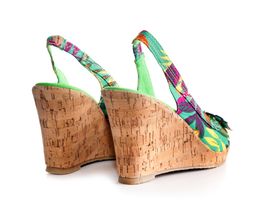Let's talk about the word "vegan." Many people immediately think of plant-based diets, but in the fashion realm, it's all about materials. Vegan fashion means no animal products are used. So, when you hear "vegan leather," it might sound like a win for animals, but there's more to the story.
Not all vegan materials are as eco-friendly as they sound.
Why Vegan Materials Matter
Vegan leather is often made from synthetic materials like polyurethane (PU) and polyvinyl chloride (PVC). While they may offer a cruelty-free alternative to traditional leather, they come with their own set of environmental woes.
First, let's look at PU leather. It's made from a plastic base and coated with a polyurethane finish. While it's vegan, it's not exactly a friend to Mother Earth. PU leather takes years to break down and can release harmful toxins during production and disposal.
And then there's PVC leather. It's even worse in terms of environmental impact. PVC production releases dioxins, which are harmful to both humans and wildlife. So, while your conscience might feel better about not using animal products, the planet is still taking a hit.
Now that we've covered the not-so-pretty side of vegan leather, let's talk about the true heroes of sustainable fashion. Enter: eco-friendly vegan materials! These materials are not only animal-friendly but also kind to our planet.

Cork is one such superstar!
It's harvested from the bark of cork oak trees, which regenerate naturally. This means cork is renewable, biodegradable, and super sustainable. Plus, it gives a unique, earthy vibe to fashion items.
So why does sustainability matter in fashion?
The fashion industry is one of the largest polluters in the world. From water pollution to excessive waste, it's a major contributor to environmental degradation.
By choosing sustainable materials, we're reducing the fashion industry's carbon footprint. We're saying "no" to harmful chemicals and "yes" to a healthier planet. It's like giving Mother Earth a big, warm hug—and who doesn't love hugs?
Moreover, sustainable fashion isn't just about materials. It's about ethical production practices, fair wages, and supporting local communities. When we choose sustainable fashion, we're making a positive impact on both people and the planet.
As consumers, we have the ability to drive change through our choices. By supporting sustainable fashion, we're encouraging the industry to prioritize the planet over profits.
And here's the kicker: sustainable fashion doesn't mean sacrificing style.
With innovative materials and creative designs, we can have our (vegan) cake and eat it too!
